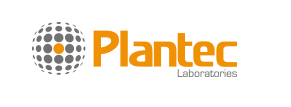More Companies Are Taking Pesticide Registration to Court in Brazil
Brazil
Pesticide registration queue at the Ministry of Agriculture has 2978 chemical formulated products. (MAPA)
Petrobras’ CEO Magda Chambriard said on April 16th the production of nitrogen fertilizers in Brazil would require 30 million m³/day of natural gas if the country chose to supply all demand internally. The State-owned company has four fertilizer factories: two leased to Unigel, in the States of Bahia and Sergipe (both shut down); one being reactivated in the State of Paraná; and one under construction in Mato Grosso do Sul. (Petrobras)
Jose Roberto Louzado Junior is the new sales director at BASF in the State of Mato Grosso. (BASF)
Study performed by researchers from the State University of Campinas shows rainwater contamination by pesticides in the cities of Campinas, Brotas and São Paulo, in the State of São Paulo. Among the 14 pesticides identified, atrazine was detected in all samples. (Unicamp)
Target spot, a disease caused by the fungus Corynespora cassiicola, has been gaining ground in cotton in the State of Mato Grosso do Sul, especially in the last two seasons. Traditionally, cotton farmers focus on ramularia, but the growing presence of target spot requires extra attention. “Since cotton farmers have always been more attentive to ramularia, they ended up being surprised by the aggressiveness of target spot in the last two years. Furthermore, with the soybean-cotton rotation, the necrotrophic fungus survives in crop residues, increasing the pressure of the disease year after year”, explains Marcelo Gimenes, Adama’s fungicide manager. (Adama)
The 2025/26 soybean crop will be more expensive. Fertilizer prices continue to rise gradually, according to Agrinvest Commodities’ analyst Jeferson Souza. In the case of phosphates, the increase was around US$ 60.00 per tonne in the last 30 days. (Agrinvest Commodities)
Since the confirmed outbreak of greening in citrus groves in seven municipalities in the West of Santa Catarina State in February, the State of Rio Grande do Sul has been strengthening measures to prevent the disease from reaching the State. “In 2022, when the first outbreak of greening occurred in Xanxerê, Santa Catarina, we developed a Contingency Plan with a series of inspection and monitoring actions for the insect vector in the citrus areas of the State, which we continue to adopt”, said the acting head of the Plant Health Defense Division of the Secretariat of Agriculture, Maria Luíza Conti. (Seapi)
Agricultural pesticides ensure cocoa production recovery and the fight against witches’ broom disease, according to the National Union of the Plant Protection Products Industry. After a decrease in yields in 2024, the current moment is strategic for preventing pests in cocoa farms and reinserting Brazil into the global market. “This is the time to synchronize the lifespan of cocoa plants and maintain continuous production throughout the year, which reinforces the need to invest in phytosanitary products and in the proper management of farms so that the country can once again be among the main cocoa producers in the world”, according to Fábio Kagi, Regulatory Affairs Manager at Sindiveg. (Sindiveg)
According to Brazil Potash CEO Matt Simpson, all permits for the Autazes Project, which is expected to manufacture 2.2 million tonnes of potash in the Amazon, have already been approved. The first stages of construction have begun and contracts with companies such as Amaggi have already been signed. “The Autazes Project is fully authorized and ready for construction,” according to the company. (Brazil Potash)
The Ministry of Agriculture has authorized José Ailton Gonçalves, Federal Agricultural Tax Auditor, assigned to the Federal Laboratory of Agricultural Defense in State of Minas Gerais, to provide training on the development and validation of analytical methods for the analysis of polar pesticides in San José, Costa Rica, from May 24th to June 8th. (MAPA)
According to Flavio Hirata, partner at the registration consulting firm AllierBrasil, in 2024 Anvisa approved 74 toxicological evaluations through legal action, compared to 55 in 2023, an increase of 34.54%. In the case of Ibama, 61 environmental evaluations of Formulated Products were approved through legal action in 2024, compared to 47 in 2023, an increase of 29.78%. “More and more companies are taking the pesticide registration processes to court”. (AllierBrasil)
An analysis by the State of Mato Grosso Institute of Agricultural Economics highlights the purchase of fertilizers for the 2025/26 season in Mato Grosso remains slow, reflecting the increase in production costs and the instability of economic conditions. “Only 38.4% of farmers had purchased fertilizers until February of 2025, which is significantly lower than the average of the last five seasons”. (IMEA)
Bankruptcy protection (similar to US’ Chapter 11) requests in the agricultural sector went from 534 in 2023 to 1272 in 2024, an increase of 138%. This includes farmers who operate as individuals and legal entities, in addition to agricultural companies. “The rise in interest rates, combined with the increase in production costs with agricultural inputs – which became more expensive due to inflation and exchange rate devaluation – were some of the main challenges. In addition, we had the aggravating factor of adverse weather conditions”, said the head of agribusiness at Serasa Experian, Marcelo Pimenta. (Serasa Experian)
Gleyson Perosa will lead the new projects team at Grupo Orion, a Brazilian company focused on equipment and solutions for the application of bioinputs. (Grupo Orion)
Cargo movement grows 6.3% at the Ports of Paraná State. “Soybean and fertilizers were the most transported products in the 1Q2025, a trend that should continue in the coming months, due to the large harvest”, said the CEO of Ports of Paraná State, Luiz Fernando Garcia. “Fertilizers are our main import commodity, and we have invested in strategic intelligence to manage them with increasing efficiency”, said the Director of Operations, Gabriel Vieira. (Portos do Paraná)
On April 17th, Petrobras’ Board of Directors approved, by 7 votes in favor and 4 against, an agreement with Unigel that provides for the reappropriation of its fertilizer factories in Camaçari, State of Bahia, and Laranjeiras, State of Sergipe, in addition to the opening of a bidding process to contract the operation. The agreement approved by the Board involved the end of litigation with Unigel in exchange for taking back the factories. (Petrobras)
In compliance with court decision, Anvisa approves the toxicological evaluation of aminopyralid 76.9 + 2,4-D-triisopropanolamine 596.9 g/L SL from Rainbow. (Anvisa)
BASF’s Agricultural Division announced Eduardo Gradiz Filho as the new head of business operations in Brazil, to lead the areas of controllership, finance, structured operations, barter and internal processes. (BASF Ag Solutions)
The State of Goiás’ Agricultural Defense Agency identified plants with symptoms of greening in tangerine orchards in Anápolis, State of Goiás. The samples were sent to the Federal Agricultural Defense Laboratory for confirmation. (Agrodefesa)

Latin America
Flavio Centola has been named marketing director for Latin America at FMC. (FMC Corporation)
Puna Bio, an Argentine startup, has just closed a new round of funding, led by Corteva Catalyst, the multinational’s venture capital arm. The amount raised was not disclosed. Puna Bio develops seed treatment products from extremophile bacteria, which are capable of living in environments with extreme conditions. (Puna Bio)
Court of Santa Fe, Argentina, upheld a ban on spraying pesticides within 1,000 meters of the urban area of Piedmont and ordered the promotion of agroecological practices in the protected area. (Court of Santa Fe)
Specialty fertilizer market (also known as Value-Added Fertilizers) in Latin America grew to US$ 3.2 billion by 2022, with projections to reach US$ 6 billion by 2030. Argentina has become a regional leader in the microgranulated fertilizer market, accounting for 90% of the more than 60,000 tonnes sold in Latin America in 2022. (Rizobacter; Amauta Agro)
Fertilizers in Argentina cost, on average, 27% more than in Brazil and Uruguay. The country faces a 10% export tariff to the U.S., high production costs, currency uncertainty, and restrictions on access to machinery. (CREA Argentina)
Researchers from the National Institute of Agricultural Technology in Argentina found that applying dairy slurry on corn for grazing can triple forage production when compared to urea. (INTA)
FMC has obtained approval in Peru for a herbicide based on tetflupyrolimet, a new molecule. (FMC Corporation)

READ MORE:

